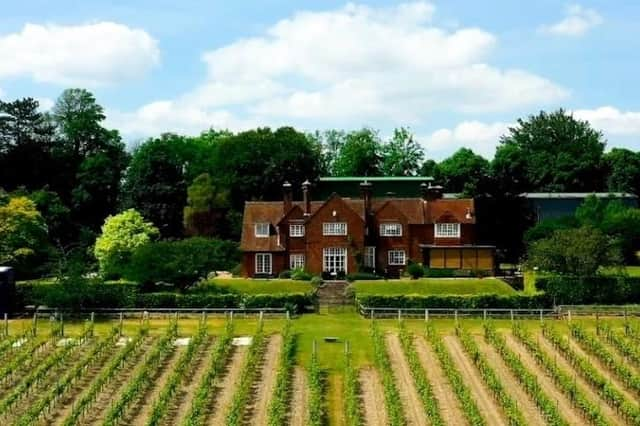Why scrapping retained UE laws will ‘put a rocket under’ UK domestic wine industry


A host of Brussels regulations that were retained after Brexit will be binned as part of the Retained EU Law (Revocation and Reform) Bill, including some that impact Britain’s blossoming wine sector.
Therese Coffey said the changes being introduced through the legislation would give vineyards the ‘freedom they need to thrive’.
Advertisement
Hide AdAdvertisement
Hide AdThe comments follow a Conservative Party row after the Government watered down plans to rid the British statute books of leftover EU rules.
Brexit-backing Tory MPs were angered after ministers confirmed 600 retained EU laws would be revoked rather than the 4,000 pledged.
The Government had originally promised a ‘sunset’ clause on all laws carried over from the trade bloc by the end of 2023 under the Retained EU Law Bill.
Former business secretary Jacob Rees-Mogg slammed the revised scrappage plan as ‘pathetically under-ambitious’.
Advertisement
Hide AdAdvertisement
Hide AdThe Department for Environment Food and Rural Affairs (Defra) said ditching the bloc’s regulations relating to winemakers would give businesses the freedom to pick from a wider range of vines, including more disease resistant varieties.
Restrictions which currently prevent the wine industry from producing new blends will also be removed, while bottlers will be able to turn imported wine into sparkling wine.
Packaging requirements – such as the stipulation that certain sparkling wines must have foil caps and mushroom stoppers — will be lifted when the legislation is passed.
Department officials said such bottle tops can prove expensive and cumbersome, with the change potentially meaning more choice for consumers as producers cut costs.
Advertisement
Hide AdAdvertisement
Hide AdCabinet minister Ms Coffey said: ‘The UK has over 800 thriving vineyards at home and hundreds of millions of pounds worth of wine trade going through UK ports every year.
‘But for too long our producers have been held back by cumbersome inherited EU regulations. We will give them the freedom they need to thrive.
‘These reforms will put a rocket under our winemakers’ businesses – growing the economy, creating jobs and supporting a vital part of our food and drink sector.’
Among the vineyards in the Portsmouth area is England’s oldest commercial one, the Hambledon Vineyard established in 1952 by Major-General Sir Guy Salisbury-Jones.
Advertisement
Hide AdAdvertisement
Hide AdOthers include the eight-acre Webbs Land Vineyard inTanfield Lane, Fareham, and the Ashling Park Estate in Chichester.
Miles Beale, chief executive of the Wine and Spirit Trade Association, said: ‘We welcome the range of measures proposed, many of which we have proposed publicly.
‘By introducing greater flexibility, wine producers and importers won’t be forced to do anything differently but will be able to innovate.’
The UK wine industry has been booming in recent years.
Winemaker Chapel Down, a Kent-based firm, reported in March that sales surged by more than 50% over 2022, selling a record 790,000 bottles from an ‘outstanding’ harvest that allowed it to produce more than two million bottles of wine.